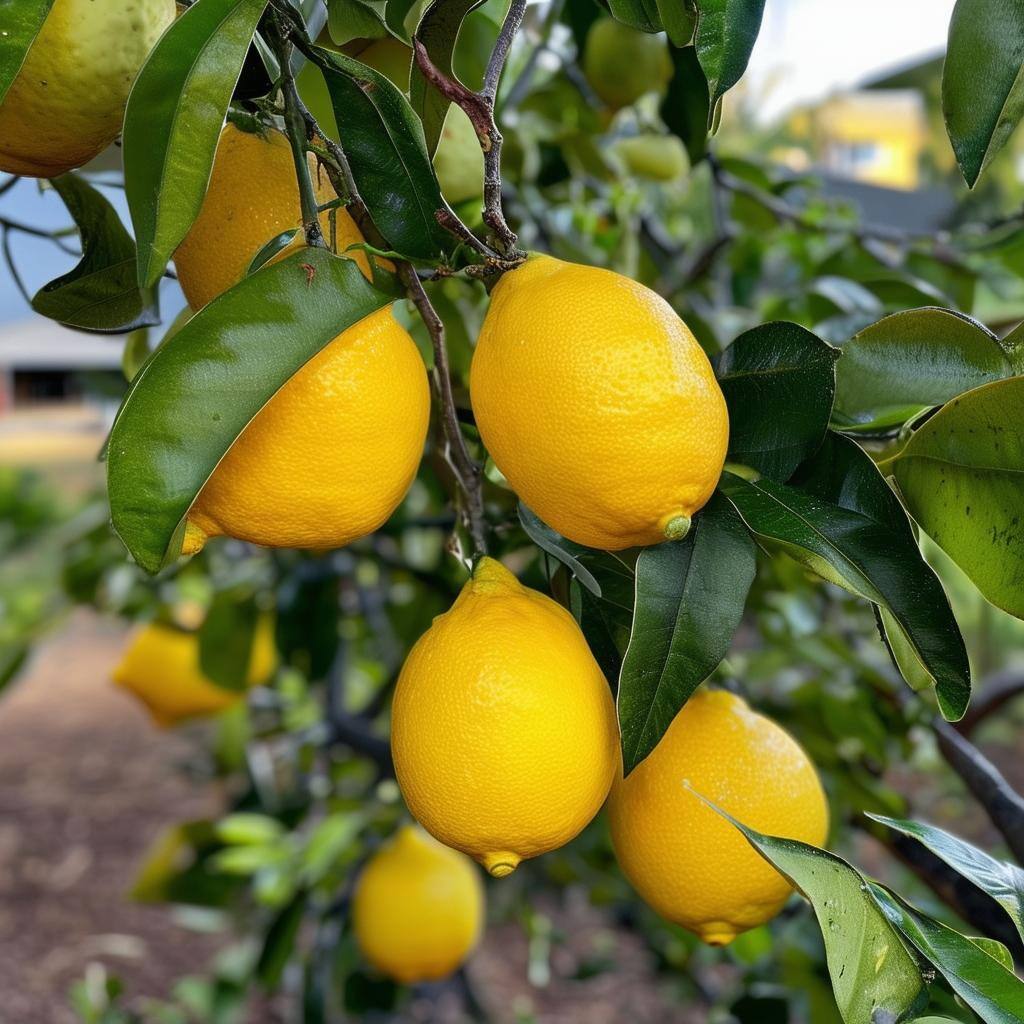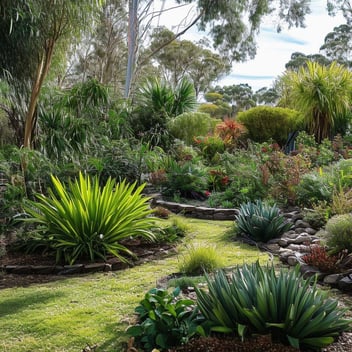Top 10 Fruit Trees Perfect for South East Queensland Gardens
Introduction
South East Queensland, with its balmy subtropical climate, presents an idyllic environment for cultivating a plethora of fruit trees. The region's warm temperatures and ample rainfall create conditions where both tropical and temperate fruits can flourish. Selecting the right fruit trees not only enhances the aesthetic appeal of gardens but also ensures bountiful harvests of fresh, home-grown produce.
Mango (Mangifera indica)
The mango tree, renowned for its succulent and aromatic fruits, stands as a quintessential addition to South East Queensland gardens. Thriving in full sun and well-drained soils, mangoes relish the region's warm climate. Varieties such as 'Kensington Pride' and 'R2E2' are particularly well-suited, offering robust growth and delectable fruits. Regular watering during dry spells and annual pruning will promote healthy development and abundant yields.
Avocado (Persea americana)
Avocado trees, with their lush foliage and creamy fruits, are a delightful choice for local gardeners. Preferring rich, well-drained soils and a sunny position, avocados benefit from the region's mild winters and humid summers. Cultivars like 'Hass' and 'Shepard' are recommended, as they exhibit resilience and produce high-quality fruits. Ensuring adequate drainage and protecting young trees from strong winds will support their longevity and productivity.
Citrus Trees (Citrus spp.)
Citrus trees, encompassing lemons, limes, oranges, and mandarins, are celebrated for their versatility and adaptability. These trees flourish in South East Queensland's subtropical climate, requiring full sun and fertile, well-drained soils. Regular fertilization and vigilant pest management are essential to maintain tree vigor and fruit quality. Dwarf varieties are available, making them suitable for smaller gardens or container planting.
Macadamia (Macadamia integrifolia)
Native to Australia, the macadamia tree offers both ornamental beauty and edible nuts. Preferring deep, well-drained soils and a frost-free environment, macadamias are well-suited to the region. They require consistent moisture, especially during flowering and nut development. Incorporating macadamia trees into home gardens not only provides a source of nutritious nuts but also supports local biodiversity.
Banana (Musa spp.)
Banana plants, with their towering pseudostems and broad leaves, impart a tropical ambiance to any garden. Thriving in the warm, humid conditions of South East Queensland, bananas require rich, well-drained soils and protection from strong winds. Regular watering and mulching are crucial to support their rapid growth. Varieties such as 'Lady Finger' and 'Cavendish' are popular choices, offering sweet and flavorful fruits.
Papaya (Carica papaya)
The papaya tree, known for its fast growth and nutrient-rich fruits, is an excellent addition to local gardens. Preferring full sun and well-drained soils, papayas are sensitive to frost and strong winds. Regular watering and balanced fertilization will promote healthy growth and fruit production. Implementing pest management strategies, such as monitoring for fruit flies, is essential to protect the crop.
Lychee (Litchi chinensis)
Lychee trees, with their dense foliage and clusters of juicy, aromatic fruits, are a prized choice for gardeners. Requiring a warm, humid climate and deep, well-drained soils, lychees benefit from the region's conditions. Varieties like 'Bengal' and 'Tai So' are well-suited, offering reliable fruiting. Regular irrigation during dry periods and protection from strong winds will support optimal growth and yield.
Passionfruit (Passiflora edulis)
The passionfruit vine, celebrated for its fragrant flowers and tangy fruits, thrives in South East Queensland's climate. Requiring a support structure, such as a trellis or fence, passionfruit vines flourish in full sun and well-drained soils. Regular pruning encourages vigorous growth and enhances fruit production. Varieties like 'Nellie Kelly' are grafted onto hardier rootstocks, offering increased disease resistance and adaptability.
Fig (Ficus carica)
Fig trees, with their expansive leaves and sweet, succulent fruits, are well-suited to the subtropical climate of South East Queensland. They prefer a sunny position and can tolerate a range of soil types, provided drainage is adequate. Pruning during dormancy helps maintain size and shape, while promoting new growth for the upcoming season. Varieties such as 'Black Genoa' and 'Brown Turkey' are popular for their reliable fruiting and rich flavor.
Pomegranate (Punica granatum)
Pomegranate trees, known for their vibrant flowers and antioxidant-rich fruits, thrive in the warm conditions of the region. They are adaptable to various soil types but perform best in well-drained soils with full sun exposure. Once established, pomegranates are drought-tolerant, making them a low-maintenance addition to gardens. Regular pruning of suckers and thinning of the crown enhances air circulation and fruit quality.
Conclusion
Incorporating these diverse fruit trees into South East Queensland gardens not only enriches the landscape but also provides a sustainable source of fresh produce. By selecting species attuned to the local climate and adhering to proper cultivation practices, gardeners can enjoy the manifold rewards of homegrown fruits, fostering a deeper connection to the natural world and a more self-sufficient lifestyle.




